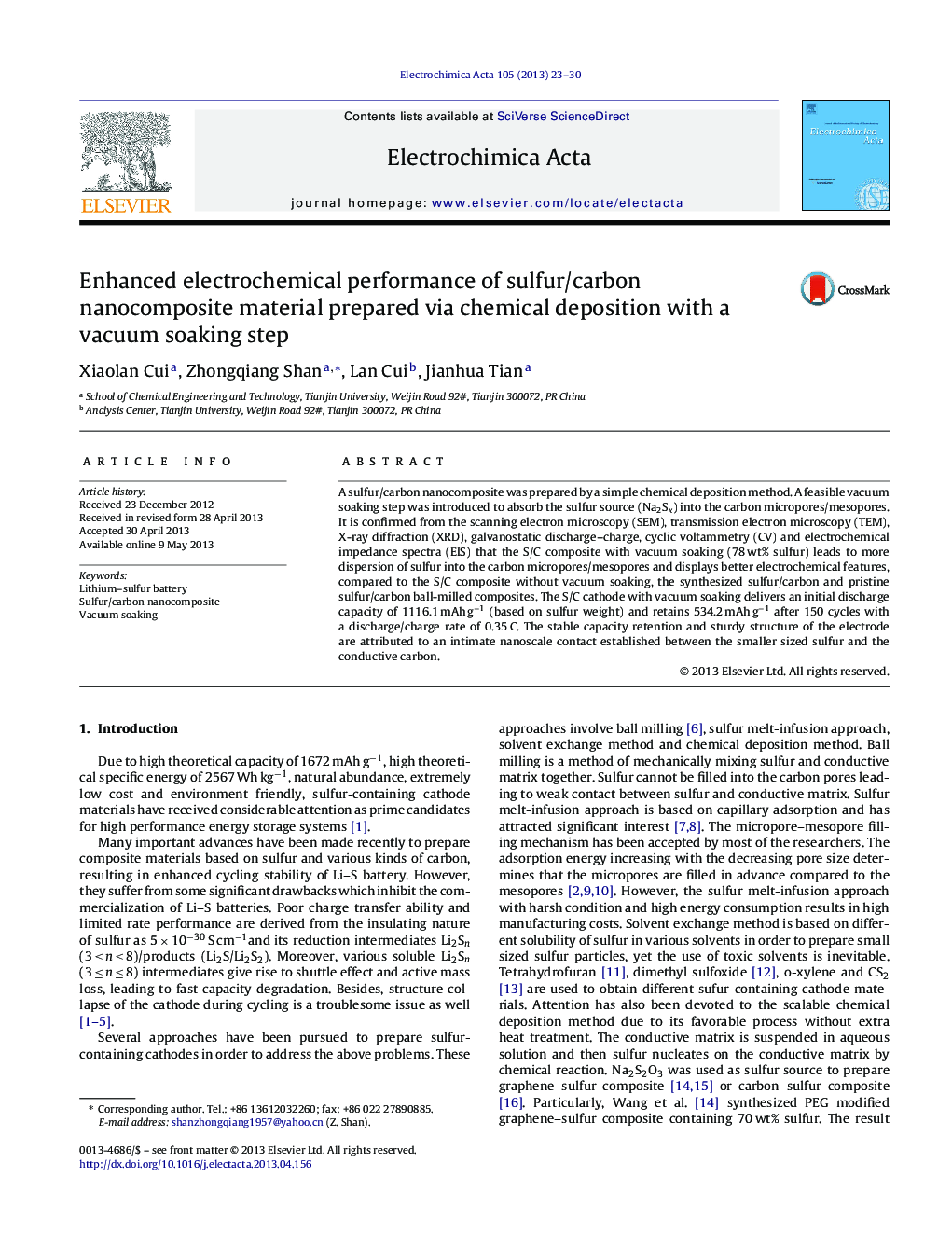| Article ID | Journal | Published Year | Pages | File Type |
|---|---|---|---|---|
| 6617234 | Electrochimica Acta | 2013 | 8 Pages |
Abstract
A sulfur/carbon nanocomposite was prepared by a simple chemical deposition method. A feasible vacuum soaking step was introduced to absorb the sulfur source (Na2Sx) into the carbon micropores/mesopores. It is confirmed from the scanning electron microscopy (SEM), transmission electron microscopy (TEM), X-ray diffraction (XRD), galvanostatic discharge-charge, cyclic voltammetry (CV) and electrochemical impedance spectra (EIS) that the S/C composite with vacuum soaking (78 wt% sulfur) leads to more dispersion of sulfur into the carbon micropores/mesopores and displays better electrochemical features, compared to the S/C composite without vacuum soaking, the synthesized sulfur/carbon and pristine sulfur/carbon ball-milled composites. The S/C cathode with vacuum soaking delivers an initial discharge capacity of 1116.1 mAh gâ1 (based on sulfur weight) and retains 534.2 mAh gâ1 after 150 cycles with a discharge/charge rate of 0.35 C. The stable capacity retention and sturdy structure of the electrode are attributed to an intimate nanoscale contact established between the smaller sized sulfur and the conductive carbon.
Keywords
Related Topics
Physical Sciences and Engineering
Chemical Engineering
Chemical Engineering (General)
Authors
Xiaolan Cui, Zhongqiang Shan, Lan Cui, Jianhua Tian,
